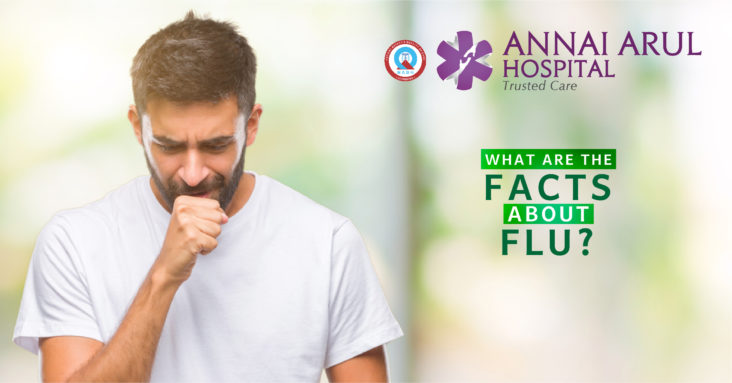It is a known fact that influenza or for short the common respiratory flu typically peaks in January and February. The illness appears in a range of mild to severe degree. Occasionally hospitalisation will be needed to treat very severe cases. Though surprising, the influenza-related death rate is rather high across the world.
What is the flu?
Flu is actually the short form for seasonal influenza, which is a viral infection that attacks the respiratory system. The flu symptoms often come on suddenly and at first look like the common cold. A runny nose, congestion, sneezing and sore throat are typical.
What are the symptoms?
The typical symptoms will include fever, body ache and muscle stiffness, chills and sweats, headaches, cough, fatigue and weakness.
Influenza and Stomach Flu
The seasonal flu is not in any way similar or related to the stomach flu which is a collective term for an intestinal infection. The stomach flu will result in diarrhea, abdominal cramping, nausea and vomiting.
Causes for flu
When a person with flu coughs or sneezes, the flu virus travels through the air in droplets when a healthy person inhales the droplets, the virus infects the person too. Even though less likely, the infection may spread by touching objects previously contaminated by a sick person and then inoculate yourself by touching your eyes, nose or mouth.
Who is at risk?
If a person is young and robust with a healthy immune system, the flu will be self-limiting, which means it can resolve with some supportive care. But high-risk people including young children, adults over 65 years, pregnant women, people with chronic illness and people with weak immune systems, can develop serious complications.
Mostly notably, this group of high-risk people can develop pneumonia due to the flu, which can lead to respiratory failure and finally, even death.
How to prevent and protect against the flu?
You can take specific steps annually to protect yourself against the flu attack.
Get vaccination: The flu vaccine is available as an injection or a nasal spray. While the vaccine may not be 100% effective, it is the best defense against flu infection.
Wash your hands: You must practice good hand hygiene which prevents catching the flu and other infections. You can scrub your hands for at least 20 seconds with soap and water or use an alcohol-based hand sanitizer too.
Cover your coughs and sneezes: Cover your nose and mouth with a tissue paper when you sneeze or cough. This prevents the virus from spreading. You can also put your arm up and cough or sneeze into the sleeves and do not sneeze or cough into your hand directly.
Keep away from crowded places: The flu virus spreads easily wherever there is a crowd. These places could be anywhere you go daily like the schools, office buildings and auditorium and even public transportation. You need not be reclusive but avoiding such crowded areas during the peak flu season will lower your chances of catching influenza.
Treatment for flu
Usually, complete rest and drinking plenty of fluids will take care of your flu. Some doctors may prescribe antiviral medications depending on the severity of your illness. If the symptoms are severe and you fall in the high-risk category, then seeing your doctor as early as possible and if need be getting admitted in a hospital will be appropriate to tackle the condition.


